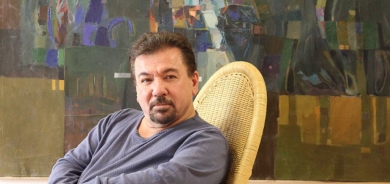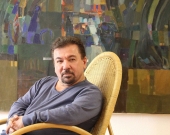Polanski wins Venice prize for film on Dreyfus Affair, a scandal that rocked France

Alfred Dreyfus was a 36-year-old Jewish army captain from France’s Alsace region, which had been annexed by Germany in the 1870 Franco-Prussian War. In October 1894, Dreyfus was accused of passing secret information on new artillery equipment to the German military attaché.
The accusation was based solely on a comparison of handwriting found on a document in the German's wastepaper basket in Paris. But it came during a period of heightened fears of the country’s Teutonic neighbours after the loss of Alsace.
Dreyfus was put on trial amid a virulently anti-Semitic press campaign in a scandal that deeply divided the Third French Republic and helped shine a spotlight on the depth of anti-Jewish sentiment in France at the end of the 19th century. Although religious minorities had been protected by French law since 1787, Jews of the period continued to face widespread hostility.
Investigation
Dreyfus protested his innocence and his family launched a campaign to defend him. But despite a lack of evidence, he was convicted of treason in December and sentenced to life imprisonment at the infamous Devil's Island penal colony in French Guiana. He was also publicly stripped of his rank.
Lieutenant Colonel Georges Picquart – the head of the army’s intelligent service and the protagonist of "An Officer and a Spy" as well as the eponymous Robert Harris novel upon which it is based – secretly reinvestigated the case that came to be known as the Dreyfus Affair.
Picquart discovered evidence in 1896 indicating that the handwriting on the incriminating message was that of another officer, Ferdinand Walsin Esterhazy. But when he presented his findings to the general staff of the French army, they refused to admit there had been a mistake.
Esterhazy was court-martialled and acquitted after a farce of a trial in 1898, departing for the United Kingdom shortly thereafter.
Picquart was driven out of the army and jailed for a year. Later rehabilitated, he served as war minister from 1906 to 1909.
Exoneration
On January 13, 1898, the renowned French novelist Émile Zola published his famous open letter to President Félix Faure, headlined J'accuse ! He accused officials of framing Dreyfus and lambasted the French government for its anti-Semitism.
Such was the official backlash that the author of Germinal and Thérèse Raquin had to flee into exile in England for some 10 months after having been convicted of libel.
France was largely divided between liberal and left-wing supporters of Dreyfus (known as “Dreyfusards”), on the one hand, and his opponents on the Catholic right – many of whom made no secret of their anti-Semitism.
In June 1899, Dreyfus was brought back to France for a second trial. He was initially found guilty and sentenced to 10 years in prison, before being officially pardoned – though not cleared – of the charges.
On July 12, 1906, after many legal twists, France’s high court of appeal overturned the original verdict, exonerating Dreyfus. He was reinstated to the rank of major. He later served during World War I and died in 1935, at the age of 76, to general indifference.
A young Hungarian Jewish journalist, Theodor Herzl, who was at the time Paris correspondent for an Austrian newspaper, closely followed the Dreyfus affair. He was disgusted by the anti-Semitism it revealed.
The man who became regarded as the father of modern political Zionism later said that the Dreyfus affair had inspired his belief that Jews should move out of Europe and set up their own state instead – an idea that helped lead to the creation of the state of Israel in 1948.
(FRANCE 24 with AFP)















